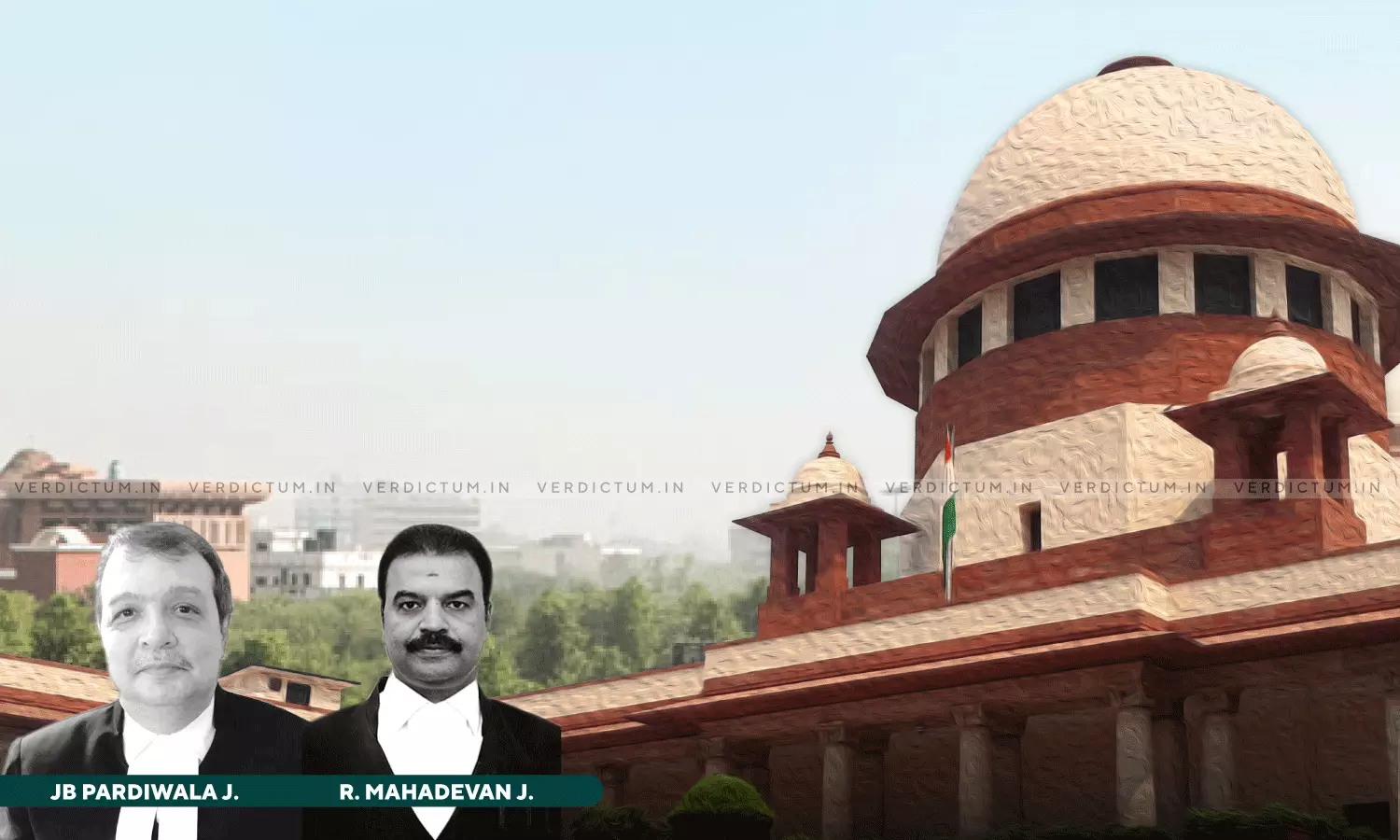
Justice JB Pardiwala, Justice R Mahadevan, Supreme Court
We Are Conscious That We Have Been Condemning HCs When They Impose Such Conditions: Supreme Court Grants Bail In Crypto Currency Scam Case Subject To Deposit Of Rs. 35 Lakhs
 |
|The Supreme Court clarified that the reasons for rejecting an application under Section 437(6) of the CrPC have to be "more weighty” than the reasons for the rejection of bail at the initial stage.
The Supreme Court granted bail in a cryptocurrency scam case, subject to the deposit of ₹35 lakh by the Accused, while remarking that it is conscious of the fact that it has previously condemned High Courts for imposing such conditions on bail.
While granting the bail, the Court noted that even though the total amount involved in the alleged scam was approximately Rs.4 Crore, only Rs. 35 Lakh was attributed to the Accused (Appellant). The Prosecution alleged that approximately 2000 investors had lost nearly Rs. 4 crore through a cryptocurrency scheme operated by the Appellant and other co-accused.
A Bench of Justice JB Pardiwala and Justice R Mahadevan held, “We are conscious of the fact that we have been condemning the High Courts when they impose such conditions. But here is a case wherein we are compelled to impose such conditions having regard to the peculiar facts of this case.”
Advocate Mangaljit Mukherjee appeared for the Appellant, while Advocate Prerna Dhall represented the Respondent.
Brief Facts
An FIR was registered against the Appellant under Sections 420, 201, 120-B and 34 of the IPC.
A charge sheet had been filed against five individuals, and the trial was ongoing before the Chief Judicial Magistrate. The Appellant had been in custody since December 2023.
The Appellant had sought regular bail before the Chhattisgarh High Court, which was rejected after it observed the serious nature of the offence and the scale of the financial loss suffered by investors.
Court’s Reasoning
The Supreme Court noted that the Prosecution intended to examine 189 witnesses, but only one witness had been examined so far. Given the pace of proceedings, the Court stated that the trial would take a prolonged period, which it remarked was a relevant factor in deciding bail. The Court also took into account that the maximum punishment for the offences under the jurisdiction of the Chief Judicial Magistrate was seven years.
The Bench noted that the Appellant relied on Section 437(6) of the CrPC which provides for bail if the trial for a non-bailable offence triable by a Magistrate is not concluded within sixty days from the commencement of evidence.
It clarified that “An accused involved in a non-bailable offence triable by Magisterial Court whose trial is not concluded within a period of sixty days from the first date fixed for taking evidence in that case, and who has been in custody during the whole of the said period, does not get an absolute or indefeasible right to be released on bail to the satisfaction of the Magistrate. The Magistrate has a discretion to direct otherwise (refuse bail) by recording in writing the reasons for such rejection.”
In respect to the same, the Court clarified that while the provision recognised the right to a speedy trial, it did not create an ‘absolute’ right to bail, as the Magistrate has discretion to deny bail by recording specific reasons. The Court emphasised that “The provisions of Section 437(6), as such, cannot be considered to be mandatory in nature and cannot be interpreted to grant an absolute and indefeasible right of bail in favour of accused.”
Consequently, the Court ordered, “We make it clear that within the time period of 6 months, if the amount is not deposited by the appellant, this bail shall stand automatically cancelled…The appeal is allowed in the aforesaid terms.”
Accordingly, the Supreme Court allowed the Appeal.
Cause Title: Subhelal @ Sushil Sahu v. The State Of Chhattisgarh (Neutral Citation: 2025 INSC 242)
Appearance:
Appellant: Advocates Mangaljit Mukherjee, Debarpita Basu Mukherjee, Dhirendra Kumar Verma, Deepak Raj Singh, Mohit Yadav and Aarti Pal; AOR Chand Qureshi
Respondent: Advocates Prerna Dhall, Karishma Rajput, Gopinadh MN, Shivam Ganeshia and Akanksha Singh; AOR Prashant Singh